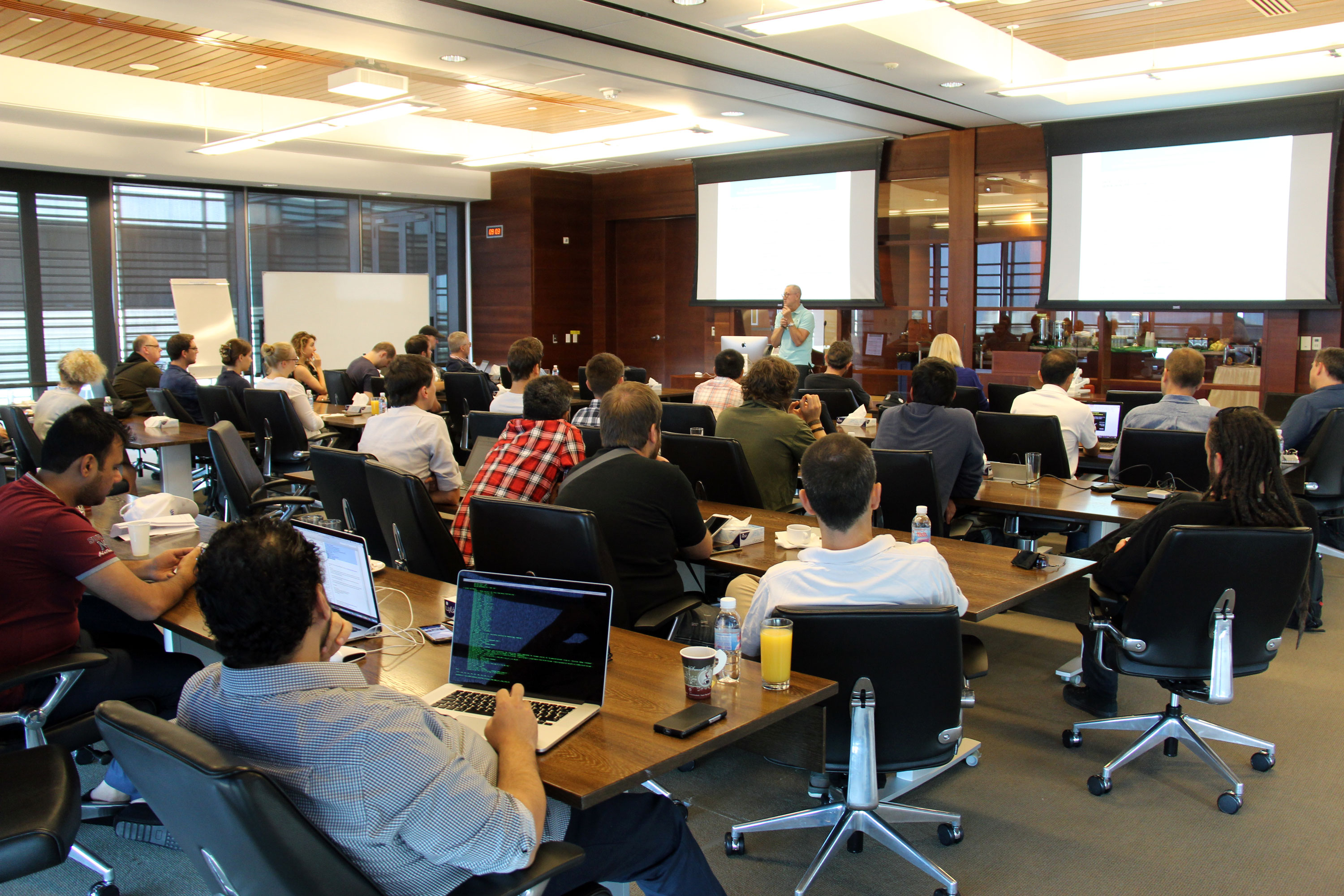The AQABA project: Measuring air quality by sea

Perhaps unsurprisingly, dust is one of the main natural climate drivers for the Middle East. As part of a continuing effort to study the region's climate, KAUST has been collaborating with a joint research program called Air Quality and Climate Change in the Arabian Basin (AQABA). The program, which consists of many international institutions, aims to collect unique data on atmospheric dust and air pollution from aboard a marine research vessel.
A research vessel, which departed from Toulon, France, is traveling through the Mediterranean via the Suez Canal and around the Arabian peninsula to Kuwait. From June 10 to 12, the vessel made a stopover at KAUST en route to Kuwait. Professor Georgiy L. Stenchikov, principal investigator in the KAUST Atmospheric and Climate Modeling group, organized a meeting where participants of the AQABA project gave presentations on the implications of their shared research.
This mission is a part of the joint KAUST/Max Planck Institute for Chemistry CRG3 project.
The impact of dust
During the meeting, Professor Johannes Lelieveld, director of the Max Planck Institute for Chemistry, spoke about the significant impact that air pollution has on health. As Lelieveld explained, it is not widely known that air pollution is behind respiratory illnesses and lung cancer cases worldwide.
Stenchikov, who opened the meeting, discussed how dust deposition measurements have important ramifications for the renewable energy sector—both solar  and wind—and in particular how dust deposition on solar panels can hinder performance.
and wind—and in particular how dust deposition on solar panels can hinder performance.
“Dust mass balance is poorly known. Observations of dust depositions and emission are required,” Stenchikov said.
Professor Stephan Borrmann, who is also from the Max Planck Institute for Chemistry, focused his talk on the physical and chemical aerosol measurements during the AQABA campaign. He spoke about aerosol composition measurements on the boat by mass spectroscopy through the analysis of maritime aerosol and desert dust.
By sea and by air
An interesting aspect of the AQABA campaign is the use of weekly unmanned aerial vehicle (UAV) flights to observe the vertical composition of the atmosphere. AQABA project member Dr. Christos Keleshis from The Cyprus Institute explained during his talk that these UAV routine observations will be performed continuously for all of 2017. Keleshis had previously performed a similar yearlong UAV-based observation in Cyprus.
The list of collaborating institutions includes KAUST; the General Authority for Meteorology and Environment; King Saud University; the Max Planck Institute for Chemistry (Germany); the University of Cairo; the Kuwait Institute for Scientific Research; Zayed University (U.A.E.); the Qatar Environment and Energy Research Institute; the University of California, San Diego; the National Center for Scientific Research (France); Hays Ships (U.K.); and The Cyprus Institute.

